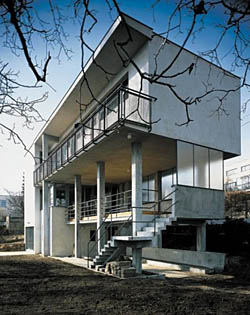
The law aims to improve the registration of monuments, add more, and increase penalties
 |
In addition to the disregard for international agreements, critics fear that the law will diminish the significance of monument protection and transfer many powers to the regions. However, the ministry argues that, unlike the current legislation, the proposal actually connects Czech monument care with international commitments.
Particularly critical is the Association of Professional Monument Care Workers (SPPPP), which claims that the proposal undermines the system of state monument care, anticipating the abolition of the National Heritage Institute (NPÚ) and decisions being made solely by the ministry and regions. “NPÚ as a professional organization for monument care is preserved, and explicitly so,” said Jan Cieslar, spokesperson for the ministry, to ČTK. He added that even today, NPÚ does not have decisive powers.
In the association's considerations, the feared idea of separating the professional component of state monument care from the management of heritage sites is resurfacing among conservationists. Previously, there was talk of transferring state castles and chateaux to the regions; today, on the contrary, the association claims that the state wants to transfer NPÚ to the regions and retain the monuments. Both options are deemed inappropriate by preservationists and could lead to the alienation of state property of immeasurable value and cultural significance. The spokesperson, however, reminds that the law does not include either of these options.
 |
A significant change is expected in that the list of immovable monuments will no longer be managed by NPÚ, but by the Ministry of Culture. Critics warn that reassessing the list will lead to its reduction; however, the proponents of the law do not rule out that it could also go the other way.
According to them, it is not clear today what constitutes a monument. The new central and fully digitized list is supposed to be more precise and definitive, and it should also assist monument owners who are exempt from property tax - they will no longer have to prove this fact.
Similarly, the SPPPP does not like the transfer of powers from the government to the ministry, which is repeatedly stated in the draft law with the justification that it will expedite the process and save administrative costs. One such transfer of competencies involves declaring monument reserves. SPPPP sees the assignment of monument decision-making to lower authorities as their degradation and reminds that in the Ministry of the Environment, the government decides on every access of researchers to national parks. The proposed new law also does not distinguish between the degrees of protection for reserves and zones.
The powers to decide on the temporary export of national cultural monuments would also be transferred from the government to the ministry. However, the declaration of national cultural monuments would remain with the government.
In addition to cultural and national cultural monuments, reserves, and zones, so-called monuments of local significance should be added, referring to less significant objects, which nonetheless have undeniable importance for a specific locality. Their owners would then also be able to request support just like the owners of other cultural monuments.
More significant care should be devoted to the monuments that the state values most, namely the 12 sites currently listed with the United Nations Educational, Scientific and Cultural Organization (UNESCO). The ministry intends to establish a World Heritage Council that would unify the care of these monuments, which is currently dispersed among various organizations. The council should consist of representatives of the state, regions, and municipalities, as well as owners of the properties that make up the monument, experts, and even entrepreneurs who conduct business in the monument's territory.
According to the new law, owners of houses located in heritage zones and reserves but not designated as monuments could also newly apply for grants. The proposal plans to establish a special fund for cultural heritage care, which would be fed by fines for violations of the monument law, as well as a portion of fees from spa or new monument fees.
Monuments that an owner neglects would be subject to state confiscation according to the law. In case of necessity, the state could also resort to expropriation. Any damage or threat to a monument would have to be reported by the owners.
The English translation is powered by AI tool. Switch to Czech to view the original text source.
2 comments
add comment
Subject
Author
Date
Více na:
hoja
11.05.08 04:36
asi to sem ani nepatri
jelito
11.05.08 06:39
show all comments









